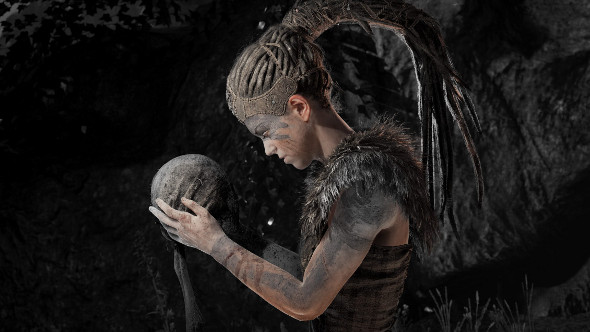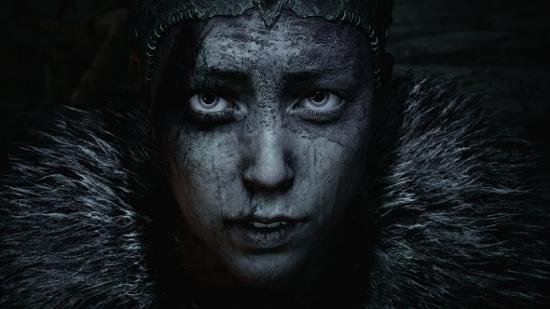In the opening of the now BAFTA-winning Hellblade: Senua’s Sacrifice, a message pops up: ‘The dark rot will grow each time you fail. If the rot reaches Senua’s head, her quest is over and all progress will be lost’.
It’s easy to understand why so many players interpreted this to mean that dying too many times would cause Senua to be permanently killed – all saves to be wiped, forcing you to start Hellblade over again.
“The wording for the permadeath message was chosen quite carefully because we didn’t want to lie to the player,” Tameem Antoniades, chief creative director at Ninja Theory, says. “It’s actually your interpretation of the message that is what threw people off.”
After more adventure? Check out the best RPGs on PC.
As we discovered in August 2017, Hellblade doesn’t, in fact, have a permadeath system. Yes, the dark rot will gradually creep up Senua’s arm, but it can never reach her head, no matter how often you fail in combat. Hellblade’s permadeath is a bluff. So why did Ninja Theory include the message?
“A large part of the game is about fear, and a large part of mental illness – psychosis in particular – is about fear,” Antoniades explains. “I was speaking to one fellow who described it as a fear of death. This was one person – I don’t want to generalise to everyone – but in this particular case, during [psychosis] episodes, there was a palpable fear that he was going to die. So that’s what we wanted to try to find an analog for in the game.”
But how do you introduce such an intense and personal fear into a videogame without misrepresenting it? “Obviously you can’t replicate those kinds of experiences, but you can suggest analogs that at least give you the conceit,” Antoniades explains. “We were looking for ideas of how you introduce fear, and one of those ideas was the permadeath mechanic. It’s the only time we’re very explicit about what will happen to you in the game.”
Despite the message being written in shadowy terms, the news that Hellblade did not feature permadeath broke on the day of the game’s release. It generated a multitude of reactions; anger from those who felt the game had lied to them, and relief from those who believed the mechanic was too punishing. “I think there was a bit of a blowout, which was quite interesting to watch from our point of view,” Antoniades says.
Despite knowledge of the permadeath bluff being out there, Antoniades believes that the wording remains important. “It’s not as simple as people think. There’s truth to the message,” he says. “But it’s your interpretation as a player that taints the meaning behind it. That’s something we wanted to do on purpose, because with mental illness it’s your frame of mind that interprets the world, and that can cause you distress.”

The message remains controversial to this day. Our YouTube video that broke the news still gets views and comments, and they remain as varied as they were on the day of Hellblade’s launch. Despite this, Antoniades still has faith that the message performed its intended effect.
“I think people still played the game and took it at face value,” he says. And for those who did, they perhaps experienced a small echo of the experience had by the man Antoniades spoke to at the start of the Hellblade project: absolute belief that they were going to die, despite there being no real threat to them at all.
